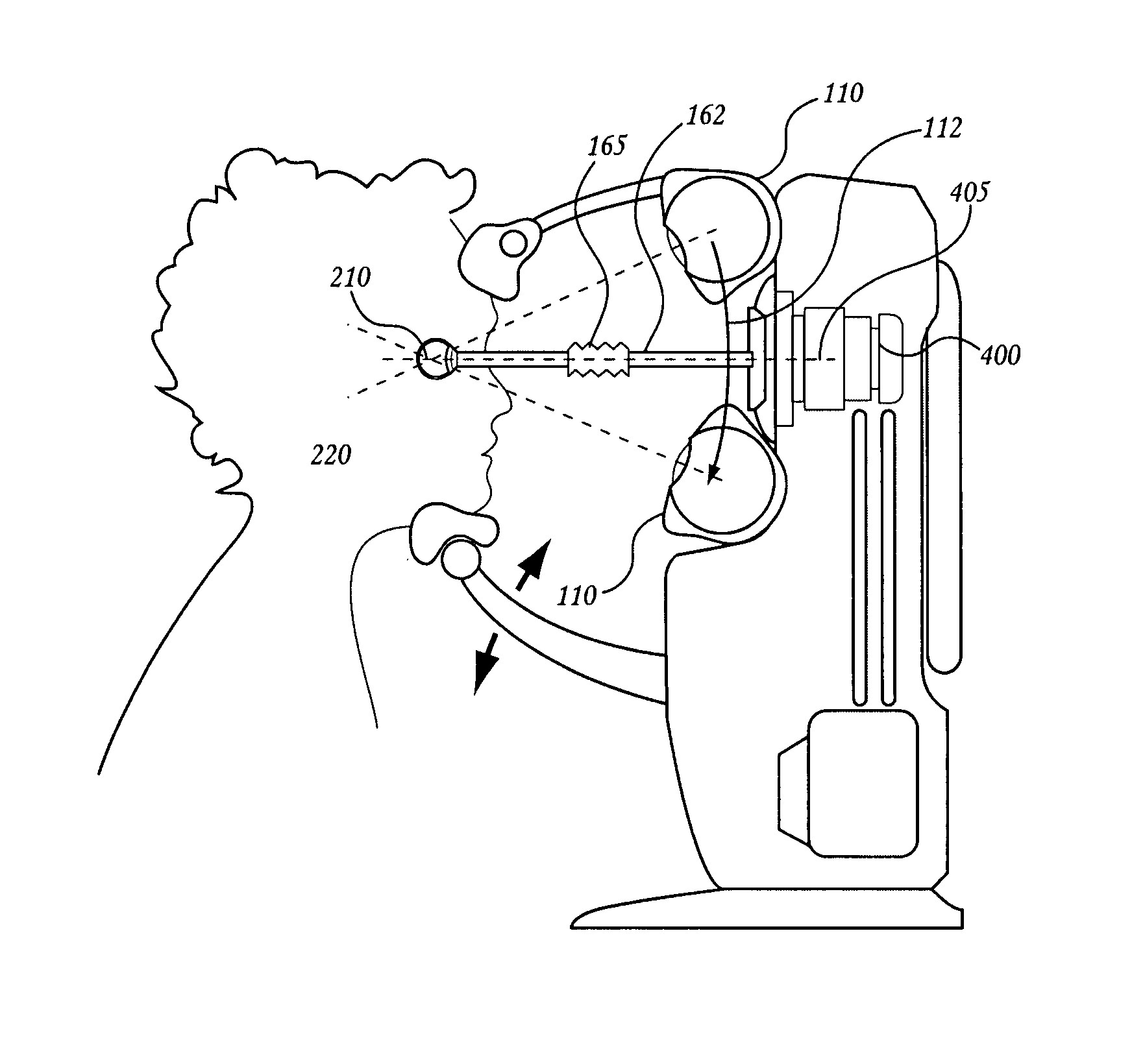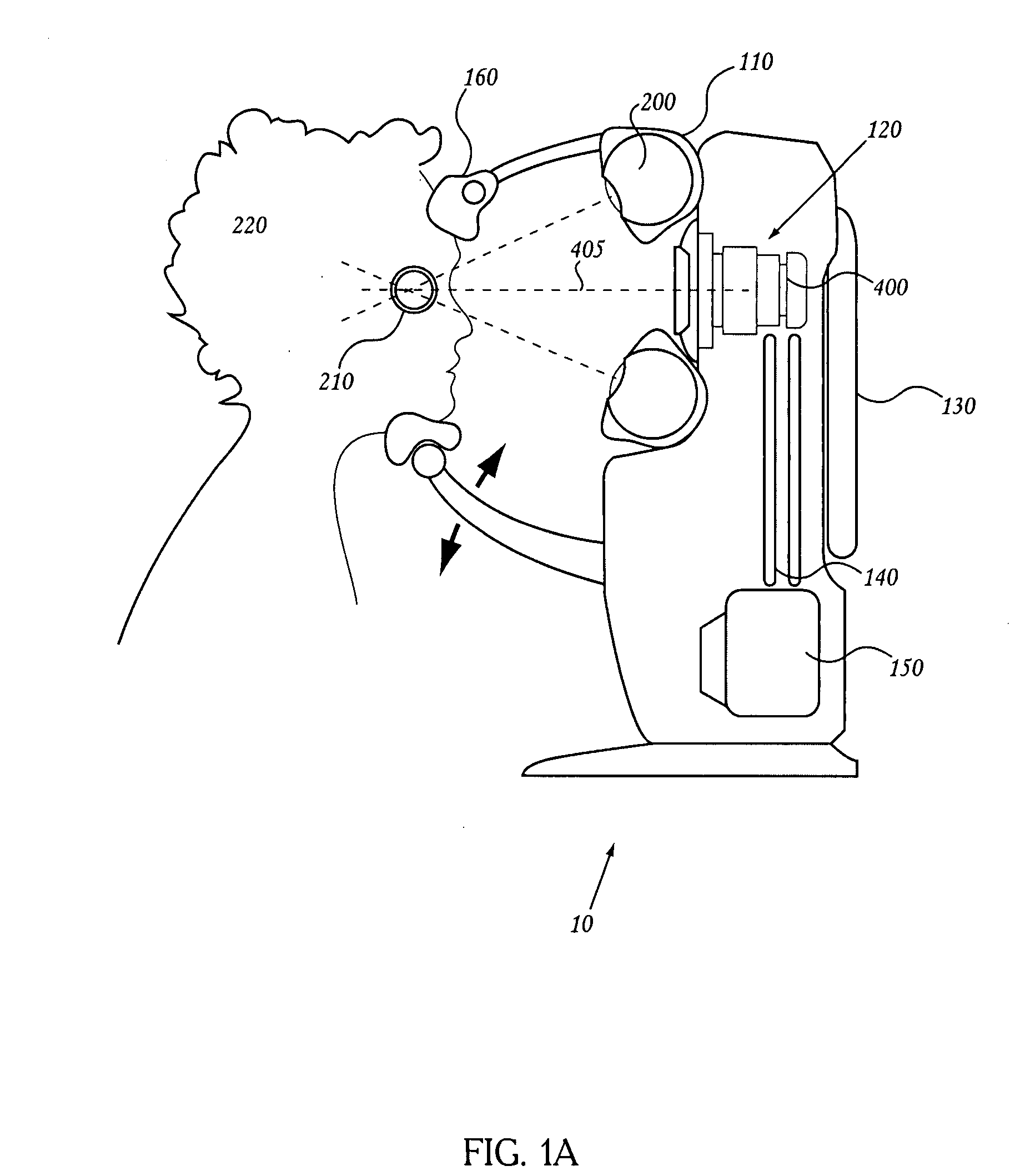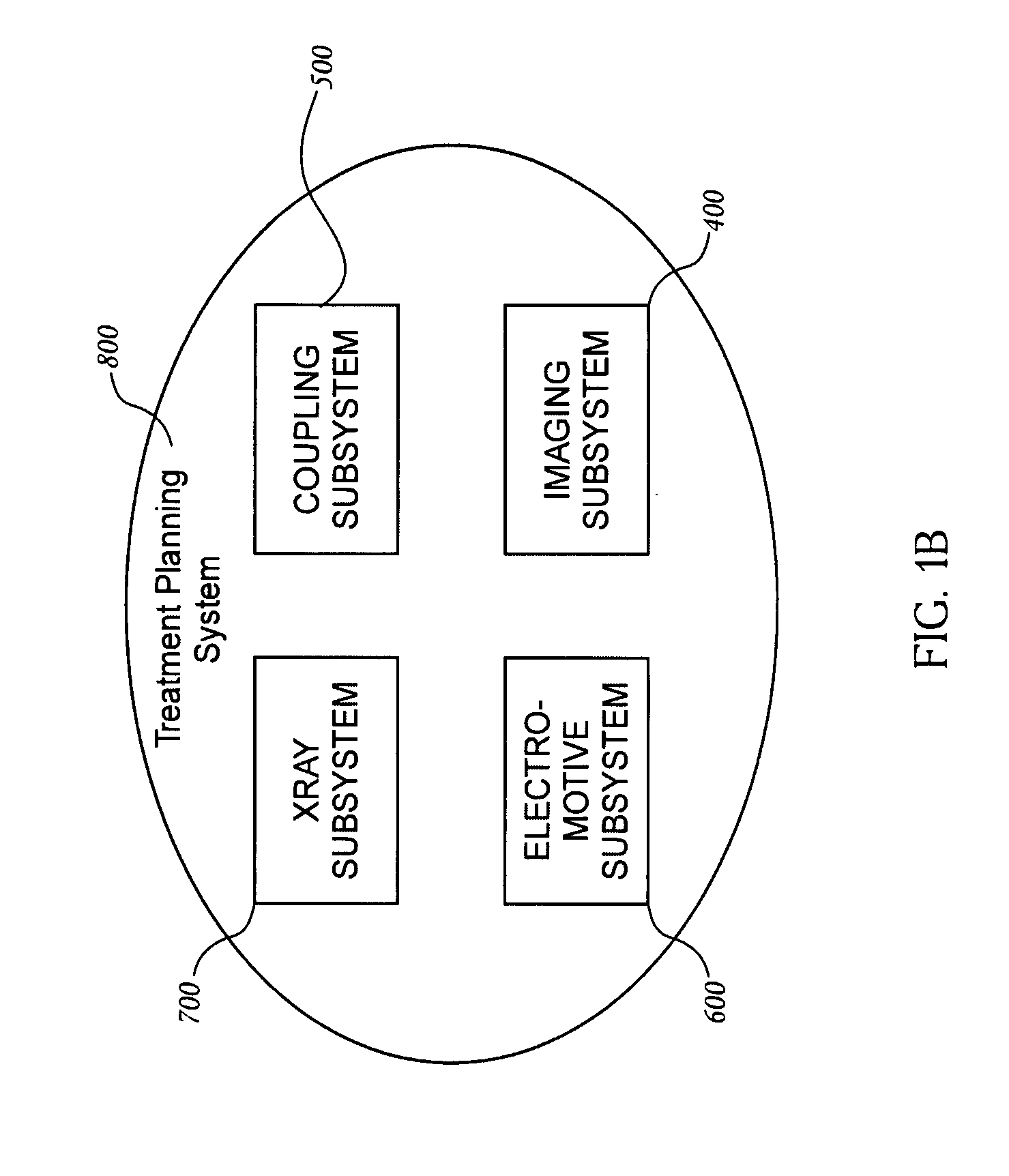Portable orthovoltage radiotherapy
a radiotherapy and orthovoltage technology, applied in the field of ocular disorders, can solve the problems of central vision loss, macular degeneration, and contains several critical structures, such as the lens and the optic nerve, that can be damaged,
- Summary
- Abstract
- Description
- Claims
- Application Information
AI Technical Summary
Benefits of technology
Problems solved by technology
Method used
Image
Examples
Embodiment Construction
[0062]The present embodiments include systems and methods for treating a human eye with radiotherapy. Some embodiments described below relate to systems and methods for treating macular degeneration of the eye using radiotherapy. For example, in some embodiments, systems and methods are described for use of radiotherapy on select portions of the retina to impede or reduce neovascularization of the retina. Some embodiments described herein also relate to systems and methods for treatment of glaucoma or control wound healing using radiotherapy. For example, in some embodiments, systems and methods are described for use of radiotherapy on tissue in the anterior chamber following glaucoma surgery, such as trabeculoplasty, trabeculotomy, canaloplasty, and laser iridotomy, to reduce the likelihood of postoperative complications. In other embodiments, systems and methods are described to use radiotherapy to treat drusen, inflammatory deposits in the retina that are thought to lead to visio...
PUM
 Login to View More
Login to View More Abstract
Description
Claims
Application Information
 Login to View More
Login to View More - R&D
- Intellectual Property
- Life Sciences
- Materials
- Tech Scout
- Unparalleled Data Quality
- Higher Quality Content
- 60% Fewer Hallucinations
Browse by: Latest US Patents, China's latest patents, Technical Efficacy Thesaurus, Application Domain, Technology Topic, Popular Technical Reports.
© 2025 PatSnap. All rights reserved.Legal|Privacy policy|Modern Slavery Act Transparency Statement|Sitemap|About US| Contact US: help@patsnap.com



